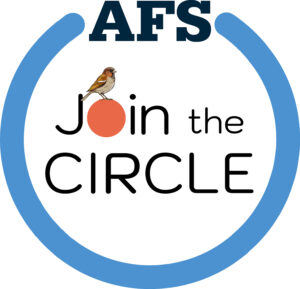It’s been observed for some time by psychologists that children who know their family stories, who have a sense of the history and lore of their families, of their place in that set of traditions and anecdotes, show a stronger sense of resilience than those who do not. When I first read about that research, it struck me that the same may be true for communities as well. The story of AFS’s founding and long history provide a central narrative and sense of identity and purpose for those of us who comprise its present and future. As we look ahead to the 2023-2024 school year at AFS, I am drawn to reflect on this community of intellectual vitality, true joy in learning and deep spirit and its long unfolding story.
Now well into our fourth century, Abington Friends School proudly dates back to the earliest days of Quakerism itself. Ours is an auspicious history that still powerfully shapes our aspirations and culture as a school community, even 326 years later. In being a part of this community, you are connected to both that history and our ambitious present day as a Friends school and I’d like to share some of that story in this letter.
In the 1690s, William Penn put out a call to Friends meetings in the Philadelphia region to found schools. He had a vision of a new kind of society, based on principles of religious freedom, tolerance and peace, of a wholesome prosperity rooted in inherent human goodness and well-developed capability. Penn knew that a new kind of citizenry would need to be cultivated in a new kind of school and thus AFS was born in 1697, answering Penn’s basic charge to provide a “useful education” with a moral grounding.
Penn’s vision for the world as it might be was grounded in a hopeful Quaker vision for who we are and who we can aspire to be as human beings. George Fox, the founder of Quakerism, believed that within each person is a divine spark that reflects the strength, patience and perspective of love and peace of the divine spirit that animates all of creation. He saw the goal of our lives to grow into our essential goodness and to come to recognize and respond to that which is sacred in our midst. William Penn hoped that in community, we could come to benefit from each other’s unique gifts, build a sturdy collective sense of well-being and common purpose that reflects us at our finest and healthiest as human beings.
I love the simplicity of William Penn’s charge to Friends schools: a useful education with a moral grounding. In his day, a useful education meant learning a trade alongside basic literacy and numeracy. The moral foundation Penn spoke of was a cultivation of simple daily virtues of decency and integrity. Today’s world calls for a far more complex, multidimensional literacy to read the world around us, create, lead and contribute richly. The moral dimension today extends beyond simple daily virtues to learning to seek and find truth with courage and integrity as a guide to living.
Over three hundred years later, we still aspire to capability and goodness as our fundamental aims for students. The world, however, has changed dramatically in that time as indeed has Quaker thought and practice itself; it has been honed and deepened over generations of new challenges and new understanding of the human condition.
Today a useful education requires a disciplined, broad and inspired exploration of our global, diverse and interconnected world. It calls for a highly-developed intellect in the humanities, arts and sciences as well as a highly-developed emotional intelligence needed to navigate a complex world and to build fulfilling, lasting and generative relationships. And the moral vision of Quaker education still teaches simple virtues but also a rich, collaborative discernment tradition that encourages us to have the moral courage to be led by truth to action that builds a more just and peaceful world.
Our Strategic Plan has articulated a series of steps to help us climb toward such a world. As a community, we envisioned The Fourth Century Center, a state of the art blueprint for research, development and professional learning in this fourth century of Friends education. The new, multidisciplinary center of learning and innovation we are planning will richly support the lives of our teachers as educators and program designers, unleashing a new creative energy at AFS. The Fourth Century Center is both real and aspirational: It will serve as a model for other independent and private schools, and its essential initiatives outlined last Spring will power innovation, growth and change for our professional community and our school for years to come.
In the coming months, you will hear from the current directors who lead The Fourth Century Center at AFS: Adena Dershowitz, Dan Taboada and Mikael Yisrael. Their combined leadership will be instrumental in making the Center a success, and I look forward to working with them to realize our shared vision for the fourth century of Friends education.
Quaker education at AFS has proven both timeless and timely through the centuries because of a combination of lasting, durable truths and a lively and responsive engagement with the larger world that continually freshens our understanding of the human condition and what education can be.
